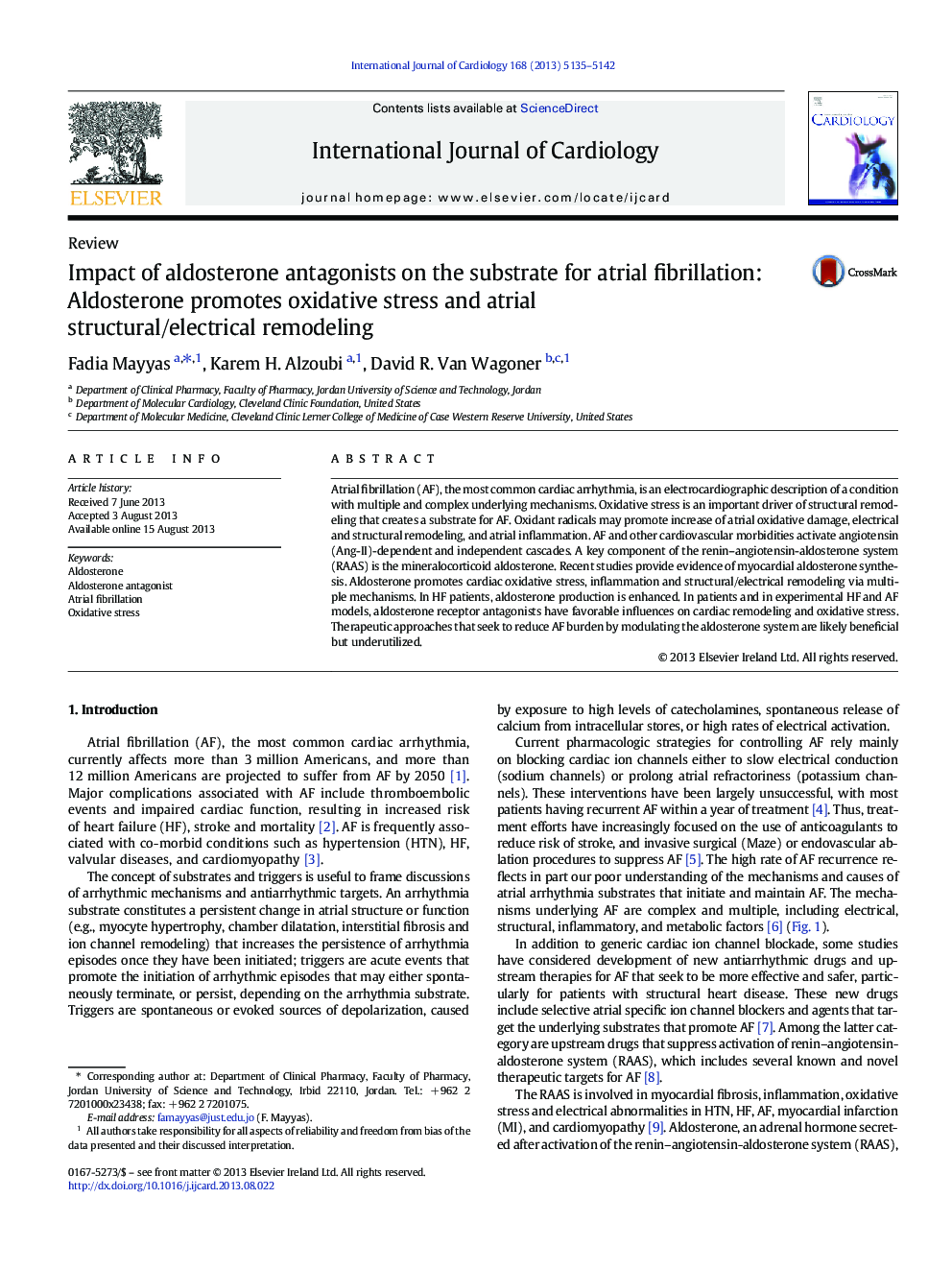| کد مقاله | کد نشریه | سال انتشار | مقاله انگلیسی | نسخه تمام متن |
|---|---|---|---|---|
| 5975025 | 1576206 | 2013 | 8 صفحه PDF | دانلود رایگان |
Atrial fibrillation (AF), the most common cardiac arrhythmia, is an electrocardiographic description of a condition with multiple and complex underlying mechanisms. Oxidative stress is an important driver of structural remodeling that creates a substrate for AF. Oxidant radicals may promote increase of atrial oxidative damage, electrical and structural remodeling, and atrial inflammation. AF and other cardiovascular morbidities activate angiotensin (Ang-II)-dependent and independent cascades. A key component of the renin–angiotensin-aldosterone system (RAAS) is the mineralocorticoid aldosterone. Recent studies provide evidence of myocardial aldosterone synthesis. Aldosterone promotes cardiac oxidative stress, inflammation and structural/electrical remodeling via multiple mechanisms. In HF patients, aldosterone production is enhanced. In patients and in experimental HF and AF models, aldosterone receptor antagonists have favorable influences on cardiac remodeling and oxidative stress. Therapeutic approaches that seek to reduce AF burden by modulating the aldosterone system are likely beneficial but underutilized.
Journal: International Journal of Cardiology - Volume 168, Issue 6, 15 October 2013, Pages 5135–5142
